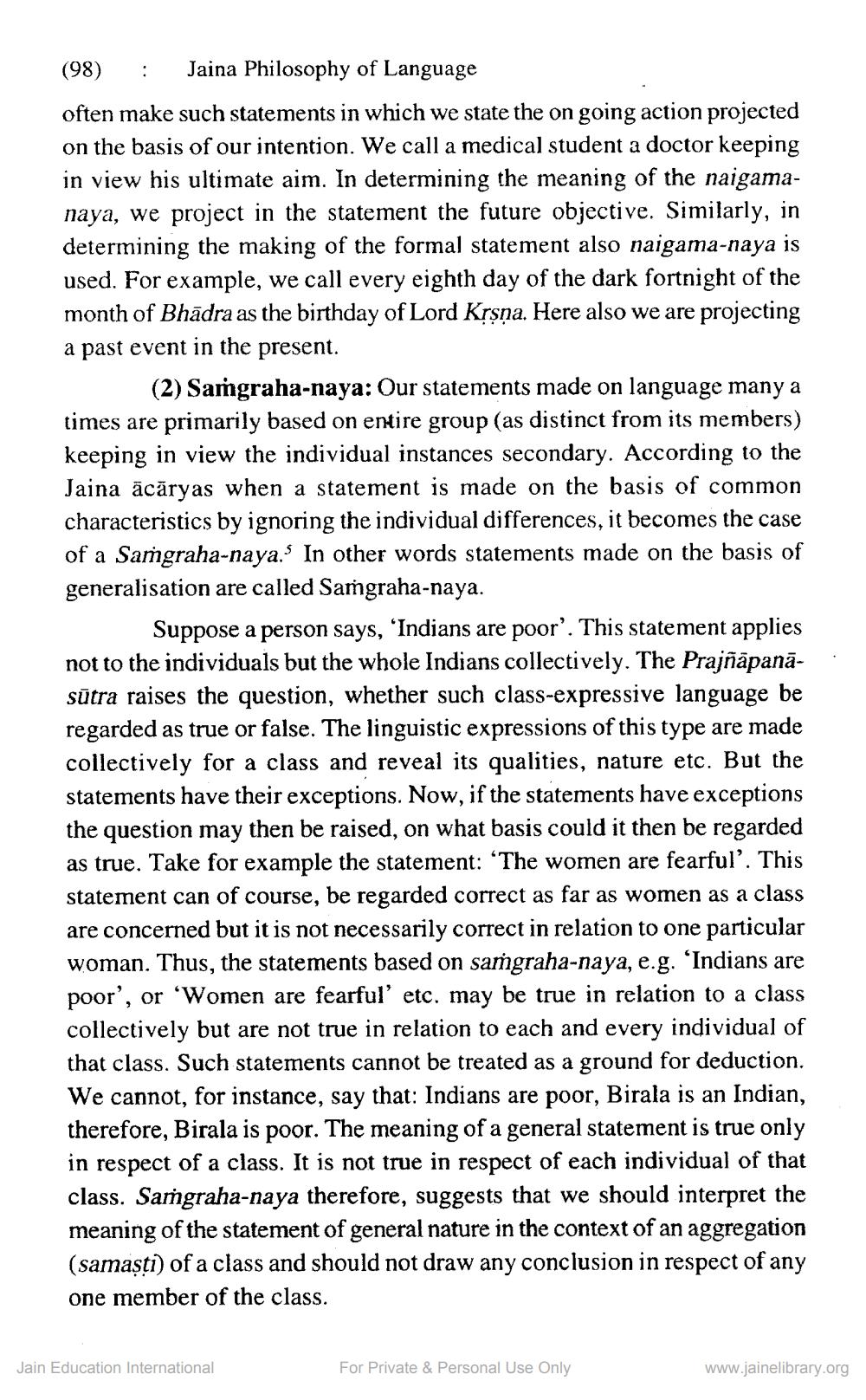________________
(98) : Jaina Philosophy of Language often make such statements in which we state the on going action projected on the basis of our intention. We call a medical student a doctor keeping in view his ultimate aim. In determining the meaning of the naigamanaya, we project in the statement the future objective. Similarly, in determining the making of the formal statement also naigama-naya is used. For example, we call every eighth day of the dark fortnight of the month of Bhādra as the birthday of Lord Krsņa. Here also we are projecting a past event in the present.
(2) Samgraha-naya: Our statements made on language many a times are primarily based on entire group (as distinct from its members) keeping in view the individual instances secondary. According to the Jaina ācāryas when a statement is made on the basis of common characteristics by ignoring the individual differences, it becomes the case of a Saṁgraha-naya." In other words statements made on the basis of generalisation are called Samgraha-naya.
Suppose a person says, 'Indians are poor'. This statement applies not to the individuals but the whole Indians collectively. The Prajñāpanā. sūtra raises the question, whether such class-expressive language be regarded as true or false. The linguistic expressions of this type are made collectively for a class and reveal its qualities, nature etc. But the statements have their exceptions. Now, if the statements have exceptions the question may then be raised, on what basis could it then be regarded as true. Take for example the statement: ‘The women are fearful'. This statement can of course, be regarded correct as far as women as a class are concerned but it is not necessarily correct in relation to one particular woman. Thus, the statements based on saṁgraha-naya, e.g. 'Indians are poor', or ‘Women are fearful' etc. may be true in relation to a class collectively but are not true in relation to each and every individual of that class. Such statements cannot be treated as a ground for deduction. We cannot, for instance, say that: Indians are poor, Birala is an Indian, therefore, Birala is poor. The meaning of a general statement is true only in respect of a class. It is not true in respect of each individual of that class. Sargraha-naya therefore, suggests that we should interpret the meaning of the statement of general nature in the context of an aggregation (samasti) of a class and should not draw any conclusion in respect of any one member of the class.
Jain Education International
For Private & Personal Use Only
www.jainelibrary.org




